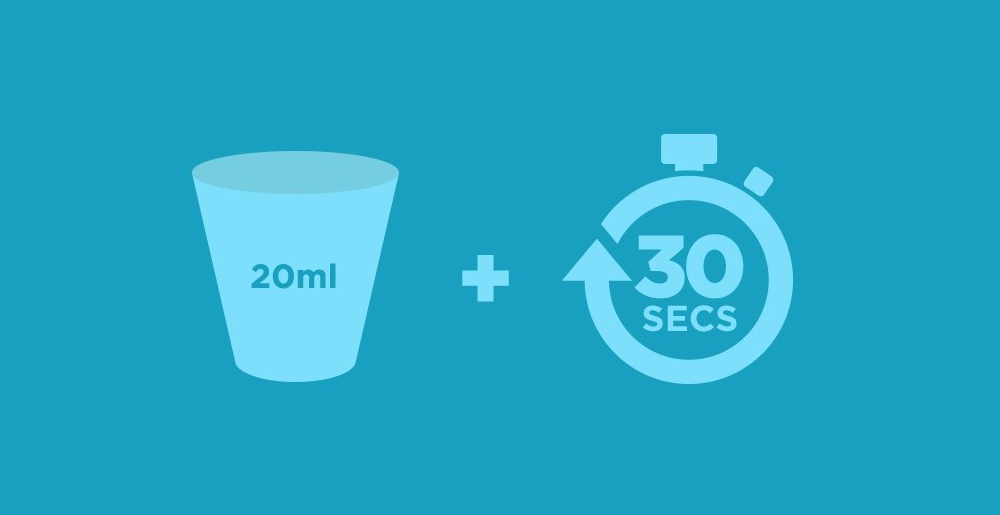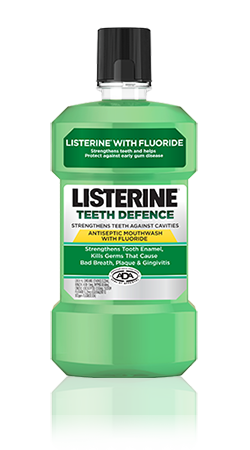No, LISTERINE® does not cause oral cancer. Scientists have compiled an extensive body of clinical data that has found no evidence or correlation between alcohol-based mouthwashes, such as LISTERINE® and oral cancer, including seven original studies and four reviews – we explain the science below.
LISTERINE® and cancer – what the evidence shows
Since the 1970s, scientists have compiled an extensive body of clinical data that has found no correlation between alcohol-based mouthwashes, such as LISTERINE®, and oral cancer, including seven original studies and four reviews. Most recently in 2011, Boyle, a researcher from the International Prevention Research Institute, conducted a quantitative analysis of all existing epidemiological studies of mouthwash use and oral cancer: So, a review of all the other studies. His review found that, across all of the published studies on the matter, there was no statistically significant association between alcohol-based mouthwash and the risk of oral cancer.14
The media attention fuelling public concern about the links between cancer and alcohol-based mouthwash is based on unreliable science and the correlation was more likely due to other factors such as smoking, alcohol consumption, reporting bias, and methodological constraints during data collection. For instance, some participants may have used mouthwash after the development of oral cancer, but this potential reverse causation was not acknowledged in the experiments’ findings.
Is LISTERINE® tested for safety?
Safety and efficacy are the most important considerations when developing LISTERINE® products. That’s why we have a five-step safety process for developing our products, which includes
Sourcing Raw materials: Selecting ingredients from suppliers that meet the rigorous quality & safety standards
Evaluating materials: evaluating selected ingredients to check they meet recognised regulatory standards.
Product testing: expert testing on volunteers in a safe lab environment.
Further testing: testing the product in ways similar to how it will actually be used in the home and real-life scenarios.
Ongoing Evaluation: continuous feedback to remain vigilant even after the product hits supermarket shelves.
For more information please visit:
https://www.safetyandcarecommitment.com/safety
What are the ingredients in LISTERINE®?
Active ingredients in LISTERINE® are essential oils – menthol (from mint), thymol (from thyme), methyl salicylate (from a variety of wintergreen plants), and eucalyptol (from eucalyptus).
Alcohol-based mouthwashes contain quality-tested ethanol (a type of alcohol) manufactured under strict Good Manufacturing Practice guidelines.
As such, LISTERINE® is safe to use as directed in supporting one’s oral care routine.
1 Weaver A, et al. Mouthwash and oral cancer: carcinogen or coincidence? J Oral Surg. 1979;37:250-253.
2 Blot WJ, et al. Oral cancer and mouthwash. J Natl Cancer Inst. 1983;70:251-253.
3 Mashberg A, et al. A study of the relationship between mouthwash use and oral and pharyngeal cancer. J Am Dent Assoc. 1985;110:731-734.
4 Young TB, et al. An epidemiologic study of oral cancer in a statewide network. Am J Otolaryngol. 1986;7:200-208.
5 Kabat, Geoffrey C., Hebert, James R., and Wynder, Ernst L. Risk Factors for Oral Cancer in Women. Cancer Research 49, 2803-2806, May 15, 1989.
6 Morse DE, et al. Mouthwash use and dentures in relation to oral epithelial dysplasia. Oral Oncol. 1997;33:338-343.
7 Winn DM, et al. Mouthwash in the etiology of oral cancer in Puerto Rico. Cancer Causes Control. 2001;12:419-429.
8 Elmore JG, et al. Oral cancer and mouthwash use: evaluation of the epidemiologic evidence. Otolaryngol Head Neck Surg. 1995;113:253-261.
9 Cole P, et al. Alcohol containing mouthwashes and oropharangeal cancers. J Am Dent Assoc. 2003;134:1079-1087.
10 La Vecchia, C. Mouthwash and oral cancer risk: An update. Oral Oncol (2009) 45, 198-200.
11 Boyle P, et al. Mouthwash use and oral cancer risk: Quantitative meta-analysis of epidemiologic studies. Oral Surg Oral Med Oral Pathol Oral Radiol Endod. 2011;112:e130
12 Wynder EL, et al. Oral cancer and mouthwash use. J Natl Cancer Inst. 1983;70:255-260
13 Winn DM, et al. Mouthwash use and oral conditions in the risk of oral and pharyngeal cancer. Cancer Res. 1991;51:3044-3047.
14 Guha N, et al. Oral health and risk of squamous cell carcinoma of the head and neck and esophagus: Results of teo multicentre case-control studies. Am J Epidemiol. 2007;166:1159-1173.

GOODBYE MORNING BREATH
Go Beyond Just Brushing
